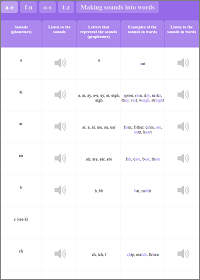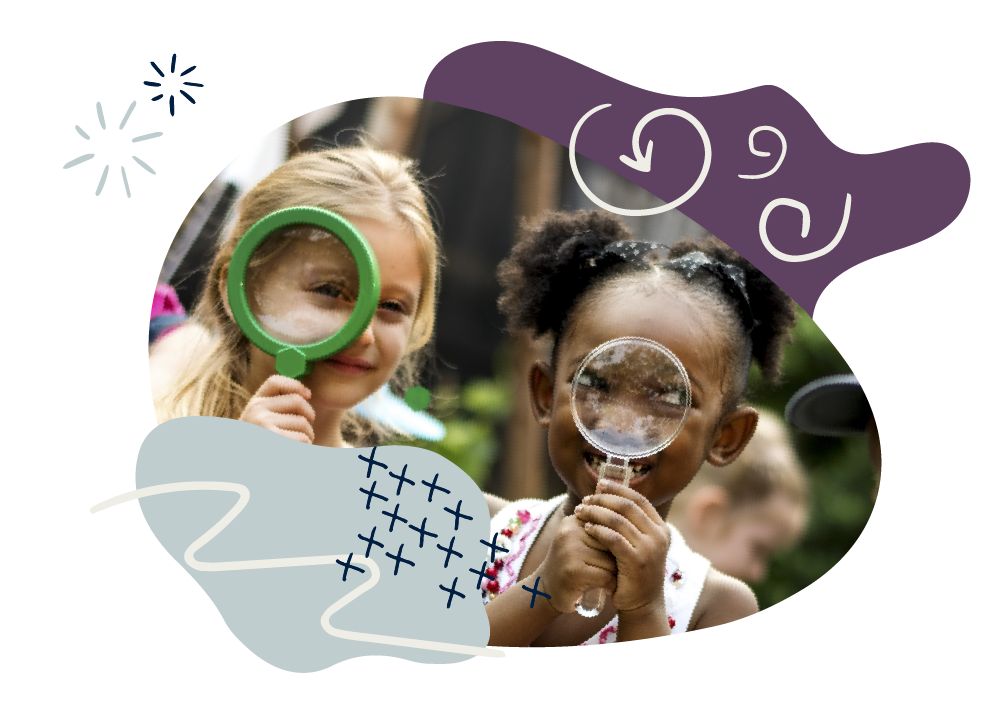Fun learning activities for 7-year-olds
Your little one will probably now be starting to read independently, but games and activities are still a fun way to help with phonic skills, word recognition and developing that all-important vocabulary.
Your child may become more aware of signs, notices, posters, newspaper headlines, TV adverts, and so on… so make the most of this new reading opportunity! This also helps to reinforce why learning to read is so important. Try some of our fun math games and activities with your child to practise their numeracy skills, build confidence, and support what they are learning at school.
Games and activities
1. Language games
- Read and remember poems, (Michael Rosen’s website has lots of great examples) and join online author fan clubs as they usually feature fun activities, jokes, and competitions.
- Play with language. Spot words within words or try to make up new words for things like stepevator for elevator, or smoketube for chimney…
- Play games such as Articulate.
2. Phonic games
- Do word searches together and then make up your own.
- Play word/spelling games like Junior Scrabble, Bananagrams, and Boggle to focus on blending letter sounds to make words.
- Write a word out – it could be a word from the weekly spellings list – cut it up and ask your child to put it back in the correct order.
Activity: Phonics guidance

Learn how to say all the phonics sounds (phonemes) and letters.
3. Memory games
- Have fun trying to memorise menus in restaurants and cafés!
- Memorise directions to the swimming pool or to a friend’s house using the right terms; turn right, go over the roundabout, pass the sweet shop and it’s second on the left.
- Play spelling pairs with your child’s weekly spelling words. Draw a word grid and write each word in a new box. You will need to write each one twice (in separate boxes). Cut them out, making sure you have two of each spelling word. Then turn them over and mix them up. Challenge your child to turn over two pieces of paper and then read each word. Are they a pair? If not, turn them back over and repeat this until they find matching pairs. Once they have found a pair, look at the spelling together and ask your child to spell the word without looking.
4. Listening games
- Draw a picture and then while you describe what you have drawn your child has to draw what you are describing. Compare your drawings.
- Make up riddles about an object or person you know and see if your child can guess what or who it is. For example, ‘They wear skirts, they have grey hair, and they live in a flat. Who are they?’
- Play ‘Repeat the sound’. Create a movement or sound (for example, click your fingers, tap your foot twice, or cough). Ask your child to copy you and add another movement or sound on at the end. You then have to repeat their movement/sound and yours back and forth, without forgetting any. This game works with two or more players and is a great way to encourage listening, memory, and concentration skills. It is also good fun!
5. Action games
- Play Twister – ask your child to read the instruction about which colour dot their left/right, hand/foot should be placed on the floor mat! Lots of skills to coordinate at the same time!
- Play charades with friends and family.
- Write words like run, walk, jump, sit, and so on on separate pieces of paper. Get your child to read the word and do the action. Time them!
6. Tactile games
- Use puppets, creatures, models to create and tell stories as a show.
- Create posters, book covers and presents using sand paper, magazine cut outs, fabric, paint, glitter glue, buttons and straws. Go 3D!
- Use fridge magnet games to build messages, stories, and poetry, like ‘Gone to Matt’s for tea!’
7. Screen games
- Buy ‘educational’ tablet, computer or DS games and encourage your child to read the instructions by themselves. Talk to your child about the games and ask them to explain how to play.
- Watch adaptations of stories, like Julia Donaldson’s The Gruffalo or Dr. Suess’s Horton Hears a Who, and talk about the differences between the book and the film.
- Show your child useful online sites like YouTube and iTunes, explaining how you read to make choices.
8. Car journey games
- Use Michelin I-Spy books (I-Spy Car Journeys, I-Spy Cars, and so on).
- Joke books can be a useful thing to pack for a long car journey. Take it in turns to tell a joke or a riddle.
- Encourage your child to read road signs, to give you directions or to set the satnav!
Video: Car journey games
Get ideas for fun and educational car games for kids! Educational author and parent Isabel Thomas shares her ideas to relieve the boredom of long car journeys.
9. Practical activities
- Look at newspaper articles, notices from school, leaflets/guides in museums together.
- Get your child to think about and plan for the week’s activities: clubs, school events, parties.
- Get them to think about holiday packing lists (it’ll save you the worry!) and ‘to do’ lists.
10. Read together
- There are some great picture books for older children so don’t give up on pictures. Don’t forget comics too!
- Read simple chapter books with fewer pictures and read a couple of chapters at night
- Listening to stories being read is not only enjoyable, but it can build your child’s vocabulary and help develop their speaking and listening skills. Visit our storyteller page to watch videos of storytellers reading favourite traditional stories.
- Why not choose a book from our free eBook library to share on-screen now together?
11. Play maths games
- Try these fun games with your child to practise maths skills and help to build your child’s confidence. Most children love playing games and it’s an easy way to support their learning.
- Multiply by 2: practise your multiplication skills with this fun game.
- Roll the dice: roll the dice and practise your addition, subtraction and multiplication skills with this fun game.
- Visit our fun maths activities page for a selection of activities and resources designed to help you enjoy maths with your child.
12. Cook together
- Cooking with your child is an excellent way to practise and talk about key maths skills – counting eggs for a cake recipe, measuring and weighing ingredients together. Best of all, you both get to enjoy a tasty treat at the end! Why not try our banana bread recipe?
- Browse all of our free recipes.
